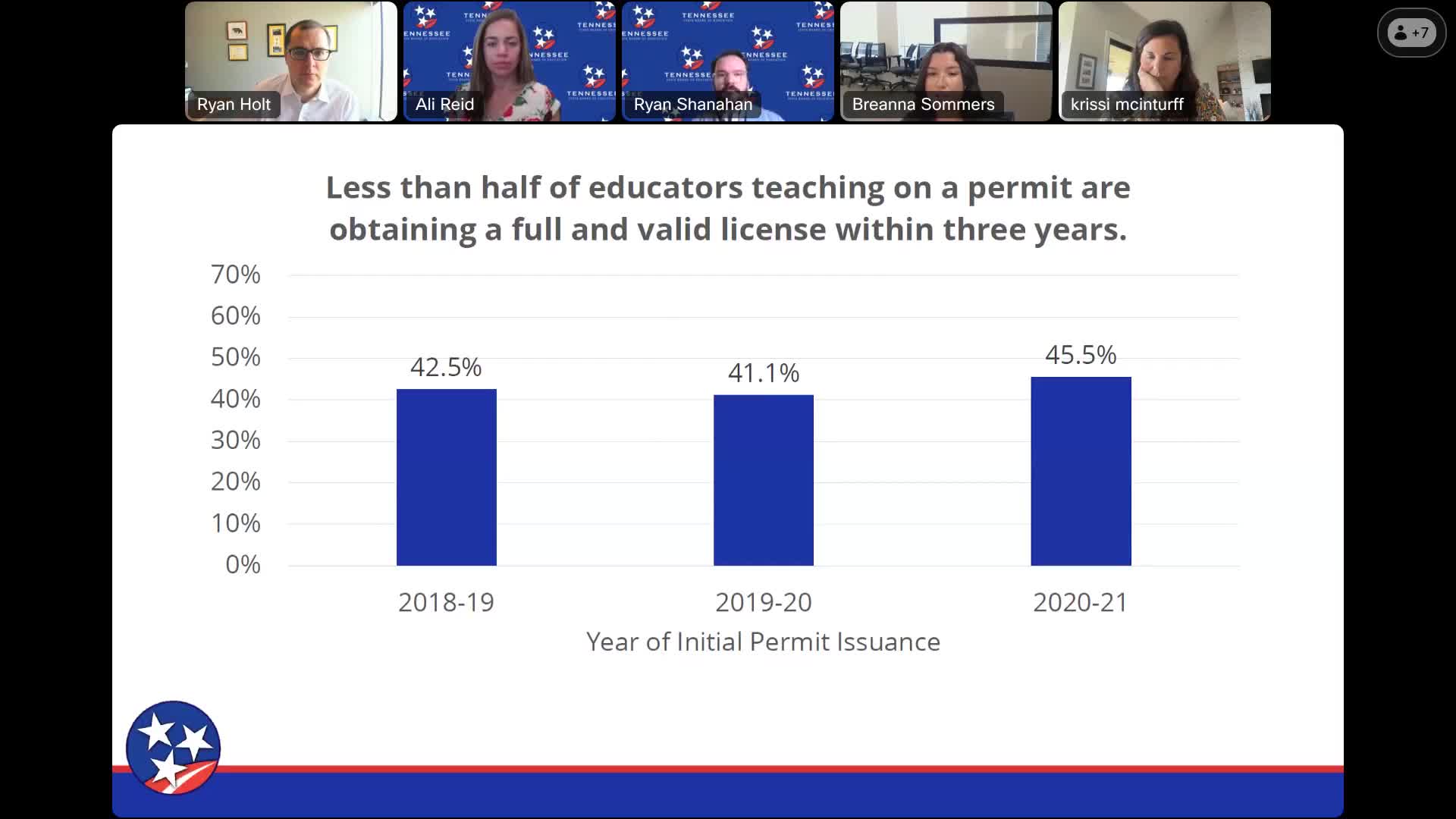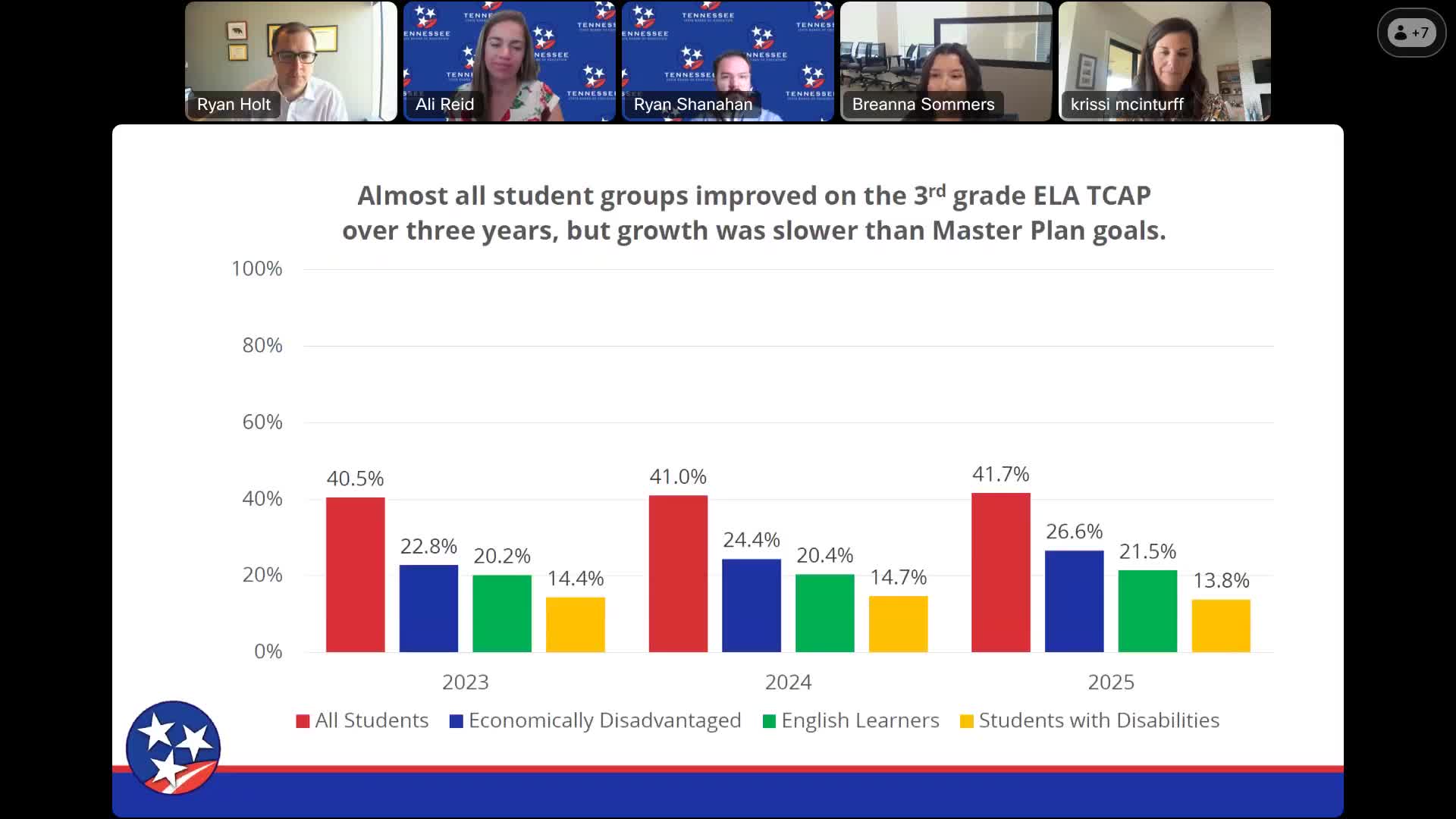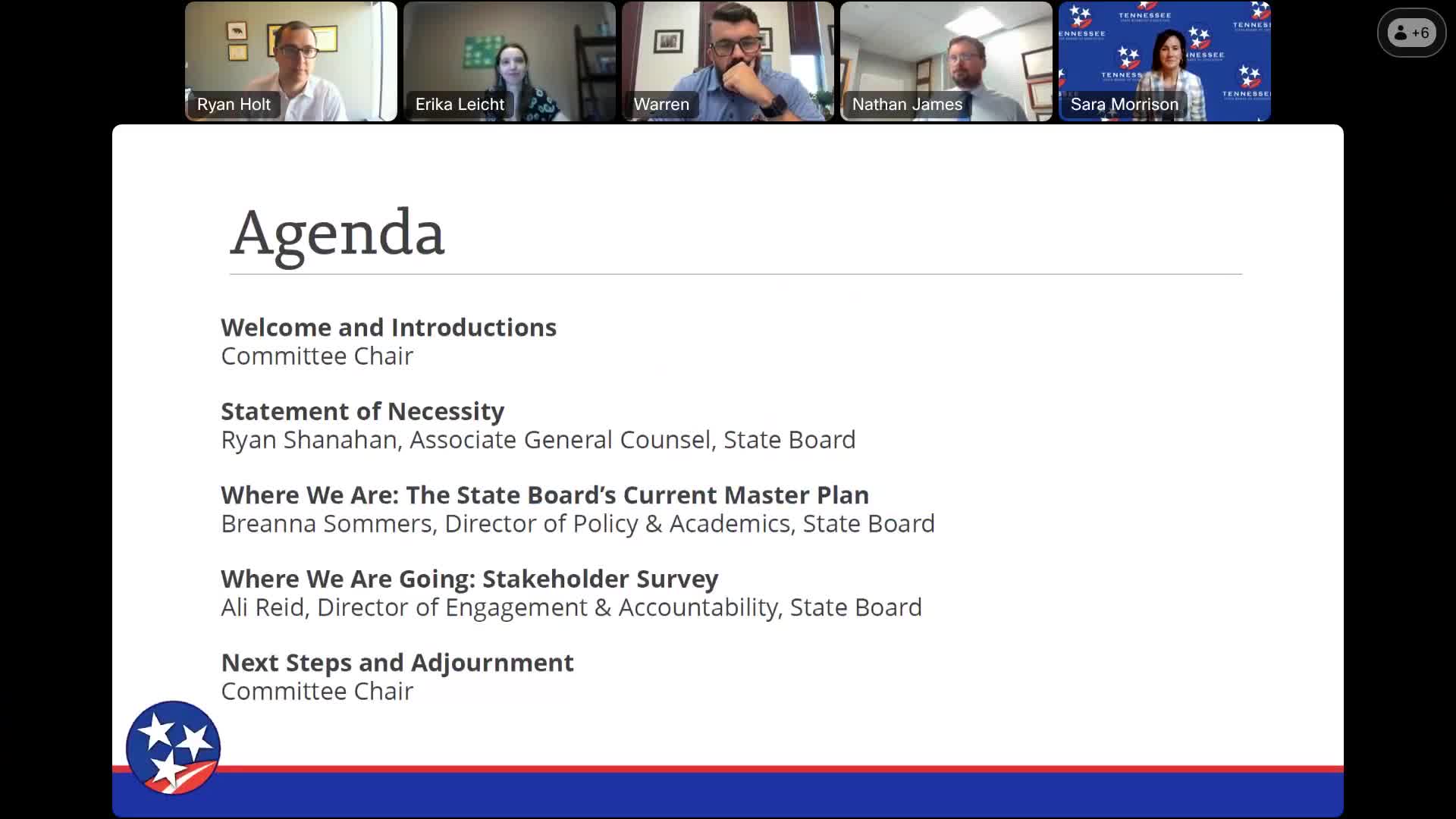Article not found
This article is no longer available. But don't worry—we've gathered other articles that discuss the same topic.

Committee focuses on teacher retention, permit-to-license gaps; staff estimates 5— to 10— of educators on permits

State board staff: literacy and postsecondary readiness improved but largely fell short of master plan goals

